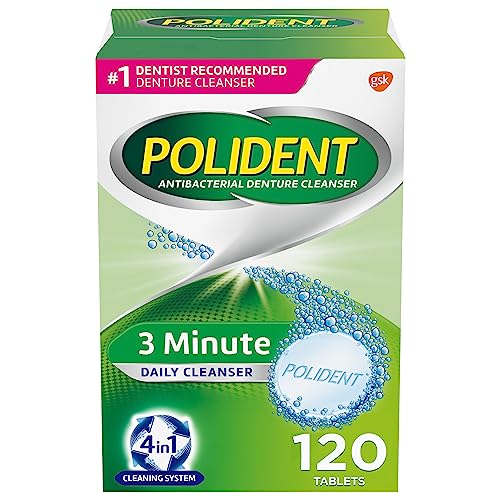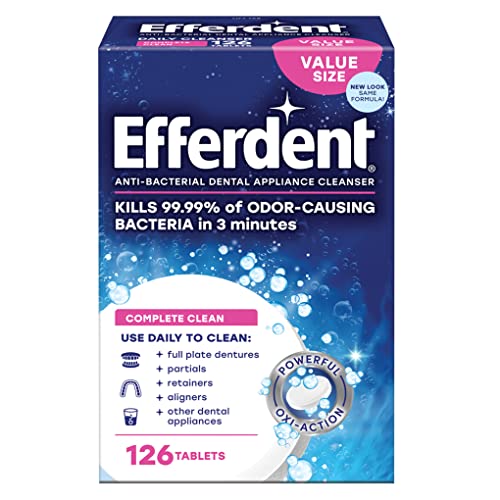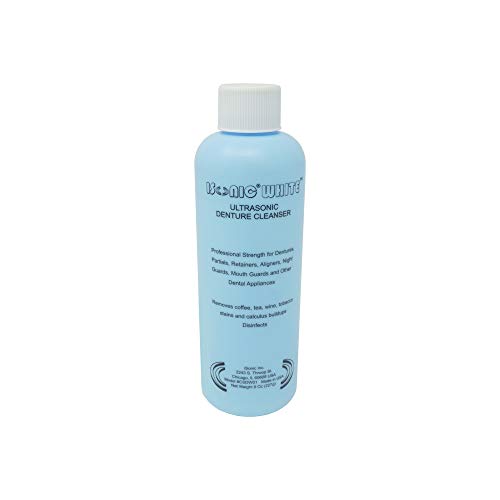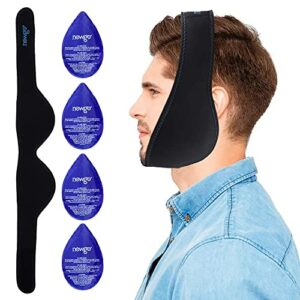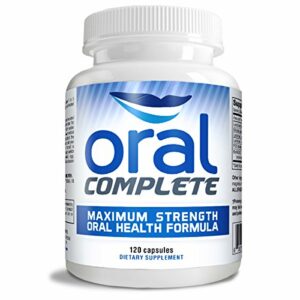In our step-by-step guide on “How to Ensure Hygiene for Denture Wearers,” we aim to provide valuable information and guidance to those who wear dentures. We understand the importance of maintaining proper hygiene for denture wearers, as it directly impacts their oral health and overall well-being. This guide will focus on denture cleaners and their purpose in keeping dentures clean and free from harmful bacteria. By following our step-by-step instructions, denture wearers can ensure optimal hygiene and prolong the lifespan of their dentures.
Keeping Your Dentures Sparkling Clean
Choosing the Right Denture Cleaner
Choosing the right denture cleaner is crucial for maintaining good oral hygiene and ensuring the longevity of your dentures. There are several key factors to consider when selecting a suitable cleaner. Firstly, it is important to take into account the type of denture material you have. Different materials require different cleaning methods to avoid any damage or deterioration. For example:
- Acrylic dentures: These are the most common type of dentures and require gentle cleaning. It is recommended to use a non-abrasive cleaner specifically designed for acrylic dentures. Avoid using hot water as it can cause warping.
- Metal-based dentures: If your dentures contain metal components, it is essential to choose a cleaner that is safe for metal. Look for products that are formulated to remove stains and bacteria without causing any corrosion to the metal parts.
- Flexible dentures: If you have flexible, nylon-based dentures, it is important to select a cleaner that is specifically formulated for this type of material. Regular toothpaste or other abrasive cleaners can damage the flexibility and integrity of these dentures.
In addition to the type of denture material, it is important to consider any specific cleaning requirements that you may have. Some denture cleaners are designed to target specific issues, such as plaque buildup, stain removal, or odor control. Here are a few key factors to consider:
- Efficiency: Look for a cleaner that is effective in removing food particles, stains, and bacteria from your dentures. Read customer reviews or seek recommendations from your dentist to ensure the cleaner is reliable.
- Compatibility: Ensure that the denture cleaner is compatible with your personal preferences and lifestyle. For example, if you prefer a quick cleaning solution, look for products that offer a fast cleaning process.
- Convenience: Consider the ease of use and convenience offered by the cleaner. Some products come in tablet form, which can be simply dropped into a glass of water for soaking, while others may require brushing or rinsing.
Remember, proper denture care plays a vital role in maintaining oral health and overall well-being. By selecting a suitable denture cleaner that meets the specific needs of your dentures, you can ensure their cleanliness and longevity, helping you maintain a confident smile.
Removing Dentures Correctly
To remove your dentures correctly, follow these gentle steps to avoid damaging them or causing any discomfort.
- Clean your hands: Before removing your dentures, make sure your hands are clean. Wash them thoroughly with soap and water to ensure hygiene.
- Rinse your mouth: Rinse your mouth with water or a mouthwash to help loosen the dentures and make the removal process easier.
- Apply gentle pressure: Gently grip the dentures with your thumb and index finger, applying equal pressure on both sides.
- Rock them gently: Using a rocking motion, move the dentures back and forth to loosen the seal. Avoid pulling forcefully as it may cause discomfort or damage.
- Remove from one side: Once the dentures are loosened, start removing them from one side of your mouth. Slowly and carefully slide them out, keeping them level so they don’t twist or snap.
- Handle with care: Hold your dentures firmly but gently to prevent dropping them. Dentures are fragile and can easily break if mishandled.
- Clean and soak: After removal, clean your dentures thoroughly with a denture brush and place them in a denture-cleaning solution or water overnight to keep them fresh.
By following these steps, you can safely and gently remove your dentures, ensuring their longevity and your comfort. Remember, being gentle is key to avoiding any damage or discomfort.
Cleaning Dentures Thoroughly
To clean dentures effectively, start by brushing them with a denture cleaner. First, rinse your dentures under running water to remove loose debris. Then, apply the denture cleaner onto a soft-bristled toothbrush and gently brush all surfaces of the dentures, including the teeth, gums, and any attachments. Be sure to brush both the inside and outside of the dentures thoroughly. Rinse the dentures again under running water to remove any leftover cleaner.
Another option for cleaning dentures is to use denture cleanser tablets. Fill a container with enough warm water to fully submerge the dentures. Drop one tablet into the water and wait for it to fully dissolve. Next, place the dentures into the container and let them soak for the recommended amount of time, usually around 15-20 minutes. After soaking, remove the dentures from the solution and rinse them thoroughly under running water to remove any residue.
If you prefer a different method, you can also soak your dentures in a denture cleaning solution. Fill a container with enough solution to cover the dentures completely. Place the dentures into the solution and let them soak for the recommended time, usually overnight. In the morning, remove the dentures from the solution and rinse them thoroughly under running water to remove any remaining solution. Remember to always follow the instructions provided with the denture cleaner, tablets, or cleaning solution to ensure proper usage.
Brushing Natural Teeth and Gums
Maintaining oral hygiene is important for denture wearers to ensure overall oral health. This includes brushing natural teeth and gums after removing dentures, as it helps prevent plaque buildup and keeps the mouth clean. Here are some key points to remember when it comes to taking care of your natural teeth and gums:
- Brushing Technique: Use a soft-bristled toothbrush and gently brush your teeth in a circular motion. Make sure to brush all surfaces of the teeth, including the front, back, and chewing surfaces.
- Time and Frequency: Brush your natural teeth at least twice a day, preferably after meals. Spend about two minutes brushing to ensure thorough cleaning.
- Toothpaste: Use fluoride toothpaste to strengthen your teeth and prevent cavities. Place a pea-sized amount of toothpaste on your toothbrush.
- Gum Massage: After brushing your teeth, gently massage your gums with your toothbrush in a circular motion. This helps improve blood circulation and keep your gums healthy.
- Rinsing: Rinse your mouth thoroughly with water after brushing to remove any leftover toothpaste or debris.
It’s important to note that dentures should be cleaned separately using denture cleaners or mild soap. By maintaining a regular oral hygiene routine that includes brushing your natural teeth and gums, you can help prevent plaque buildup, gum disease, and maintain a healthy smile. Remember, if you have any concerns or questions, consult your dentist for personalized advice.
Storing Dentures Properly
To store your dentures properly when they are not in use, there are a few steps you can follow to ensure they stay clean and undamaged. Here is a clear and easy-to-follow guide on the correct way to store your dentures:
- Use a denture case: Always store your dentures in a denture case when you’re not wearing them. This will protect them from accidents and prevent them from getting lost.
- Clean denture case: Make sure your denture case is clean before storing your dentures. Rinse it with warm water and mild soap, and then dry it thoroughly to remove any bacteria or debris.
- Fill the case with a denture cleaning solution: Fill the denture case with a denture cleaning solution or plain water. This will keep your dentures moist and prevent them from drying out, which can cause them to become brittle.
- Place dentures in the case: Gently place your dentures in the denture case, making sure they are fully submerged in the cleaning solution or water. Avoid placing any sharp objects or other items in the case that could damage your dentures.
- Close the case securely: Close the denture case securely to ensure that your dentures are protected from any accidental falls or exposure to bacteria.
By following these simple steps and using a denture case filled with a cleaning solution, you can keep your dentures clean, fresh, and protected when they are not in use. Remember, proper storage is essential for maintaining the longevity and quality of your dentures.
Promoting Clean and Healthy Smiles
In conclusion, we must emphasize the vital importance of maintaining proper denture hygiene for the overall oral health and well-being of denture wearers. Throughout this guide, we have highlighted key practices such as daily cleaning, regular denture inspections, and proper storage. By incorporating these habits into our daily routine, we can prevent oral infections, maintain fresh breath, and prolong the lifespan of our dentures. Remember, taking care of our dentures means taking care of ourselves. Let us prioritize our oral hygiene and commit to the necessary steps for a healthy and confident smile.
Maintaining Denture Freshness
Step-by-Step Guide to Effectively and Safely Use Denture Cleaners
- First, remove your dentures from your mouth and rinse them thoroughly under running water to remove any loose debris or food particles
- Next, fill a clean basin or sink with warm water. Make sure the water is not too hot as it may damage the dentures
- Place the dentures in the basin and add a denture cleaner tablet or solution as instructed on the packaging
- Allow the dentures to soak in the solution for the recommended amount of time. This usually ranges from a few minutes to overnight, depending on the product
- After the soaking time, gently brush the dentures using a soft-bristled toothbrush or denture brush. Pay attention to all surfaces, including the teeth, gums, and inner sides of the dentures
- Rinse the dentures thoroughly under running water to remove any remaining cleaner residue
- Finally, place the dentures back into your mouth and rinse your mouth with water to ensure there is no residual cleaner left
- Remember, different denture cleaners may have specific instructions, so it’s essential to read and follow the manufacturer’s guidelines. If you have any concerns or questions, it’s always a good idea to consult with your dentist or dental professional for personalized advice. We hope these steps help you in getting started with using denture cleaners effectively


